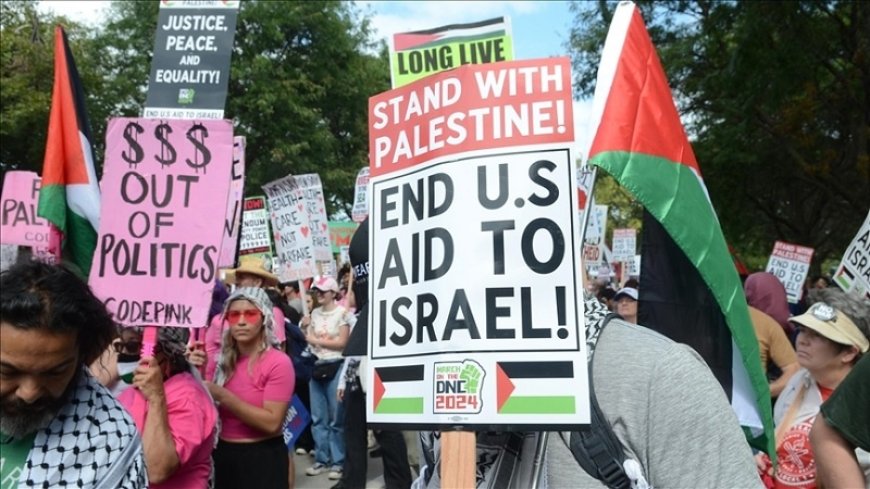US Lawmakers Propose Bill Targeting Universities Supporting Israel Boycott
Aiming to deny federal funds to colleges engaged in the Boycott, Divestment, and Sanctions (BDS) campaign against Israel, two U.S. legislators have proposed a measure. Last Tuesday, Republican Representative Virginia Foxx and Democrat Representative Josh Gottheimer presented the bipartisan plan known as The Protect Economic Freedom Act. Should the measure be approved, Title IV of the Higher Education Act would be changed to penalize financially universities engaged in BDS activity.

Aiming to deny federal funds to colleges engaged in the Boycott, Divestment, and Sanctions (BDS) campaign against Israel, two U.S. legislators have proposed a measure. Last Tuesday, Republican Representative Virginia Foxx and Democrat Representative Josh Gottheimer presented the bipartisan plan known as The Protect Economic Freedom Act. Should the measure be approved, Title IV of the Higher Education Act would be changed to penalize financially universities engaged in BDS activity.
Launched in 2005 by more than 170 Palestinian organizations, the BDS movement calls for economic, cultural, and professional boycotts of Israel until it conforms with international law and honors Palestinian rights. Advocates likest it to the worldwide anti-apartheid movement against South Africa during the 1980s. The movement, which began with thousands of volunteers asking organizations to cut relations with Israel in favor of Palestinian self-determination, has grown traction worldwide since its founding.
While detractors of the measure claim that it stifles free expression and academic freedom, supporters of the bill worry that BDS efforts unfairly target Israel and promote anti-Semitic attitudes. Driven by indignation over recent Israeli military operations in Gaza, the bill surfaces during increased tensions following a surge of pro-Palestinian campaigning on American university campuses.
Universities all throughout the United States saw passionate demonstrations this spring over what activists characterize as Israel's "genocide" against Palestinians. Student demonstrators asked that colleges separate from companies benefiting from Israeli military operations and urged for the end of the bloodshed in Gaza. Sometimes these demonstrations turned into confrontations with law officers, underscoring the division of the problem.
The proposed measure has generated discussion on how to strike a balance between opposing anti-Semitism and safeguarding of freedom of expression. Critics caution it could disproportionately damage student-led activity and force colleges into quiet on human rights concerns. As debates rage over U.S. support for Israel and the restrictions on political discourse on campuses, the law would further polarize views.













































